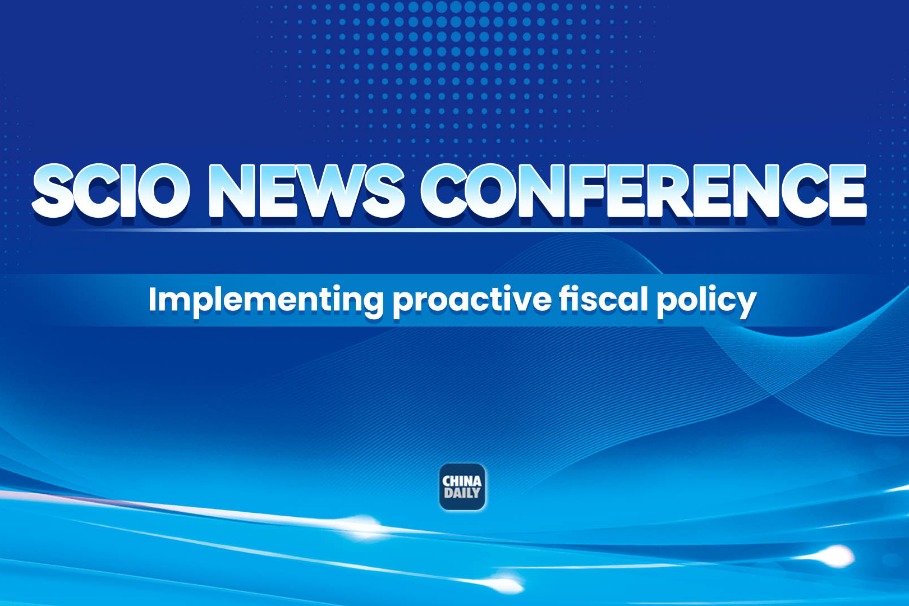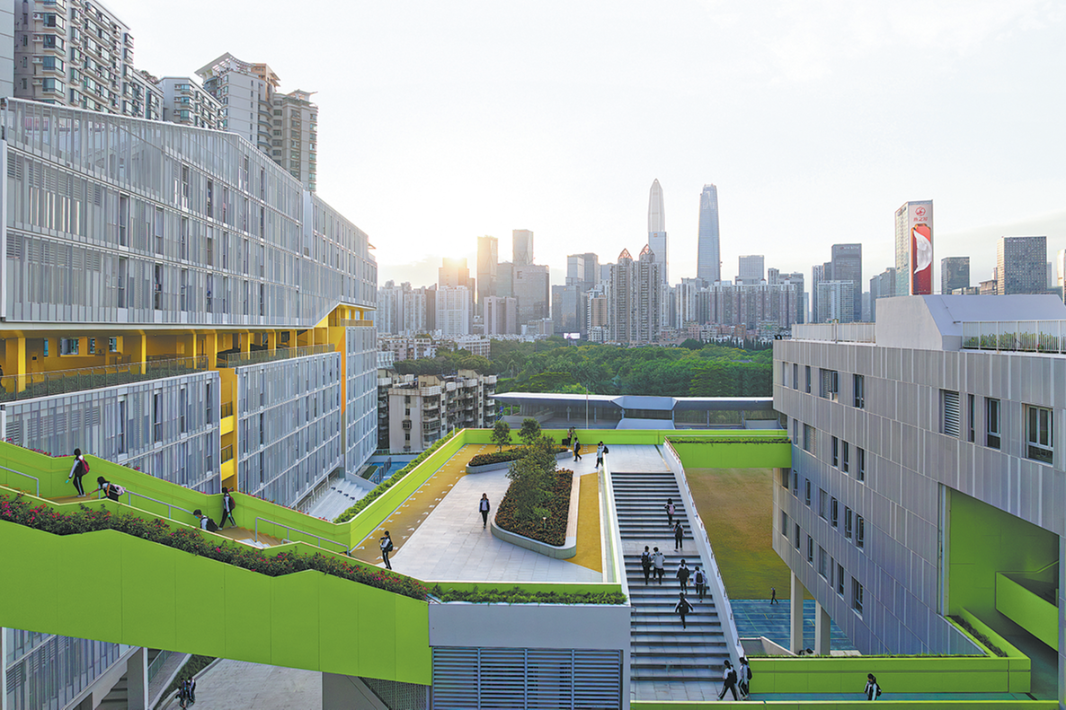From mirage to flourishing oasis

After years of dreaming, Chinese companies leave their footprints in Egyptian sand
When Wei Jianqing arrived in Egypt to work six years ago he received a very unpleasant surprise.
Wei, in his late 20s, had heard of the wonders his company, Teda of Tianjin, was performing on a one and a half square kilometer plot near the port of El-Sokhna, 200 kilometers east of Cairo on the Gulf of Suez. He was going there to be part of a team that was, he was told, transforming this patch of desert into an economic zone fit for the 21st century.
| Suez Economic and Trade Cooperation Zone is home to 31 businesses, and is the largest such zone in Egypt. Provided to China Daily |
"When I first laid my eyes on it, I felt absolutely let down," Wei says.
Instead of the hustle and bustle of a flourishing commercial and industrial project, there were just three small companies and a few factories, and working and living conditions were rudimentary.
Yet plans for the Suez Economic and Trade Cooperation Zone, commonly called Sezone, had been on the drawing board for about 10 years, and building had finally begun in 2008. Today, the transformation that Wei had hoped to see in 2008 is there for all to see. The zone has become home to 31 businesses, and it now the largest zone in Egypt. Companies there work in light industrial manufacturing, the automotive industry, logistics, technology development and other areas, and they include Guangdong Chigo Airconditioning, the fiberglass maker Jushi, of Tongxiang, Zhejiang province, and Brilliance Auto Group of Shenyang, and all the companies have pumped a total of $600 million into it.

Wei's employer Egypt-Teda Investment Co won a tender in 2007 to manage the zone, and holds a 80 percent stake in it, the rest being held by its Egyptian partner.
Just as Sezone has surged ahead in the past six years, Wei says the hardy conditions he had to endure turned out to be beneficial, and he has made his way up in the company from an office clerk to an executive director.
Those lean years fueled his determination and have given him a wider vision, he says.
"I am fortunate to have had a good base from which to start: China's going-out policies. In many ways I have become more open and tolerant, for example in respecting people from different cultural backgrounds."
One of the zone's selling points has been that it is "in the center of the world" and a bridge between Asia, Europe and Africa. It is only 2 kilometers from El-Sokhna, the third-largest port in Egypt, 30 minutes' drive from Suez, and 90 minutes from Cairo.
The location gives the zone convenient access to markets in Central, South and East Asia, and ships can reach the zone through the Red Sea easily, saving the cost of using the Suez Canal.
Teda says it has invested $90 million in the zone, and the original area it covered has increased five-fold.
Wei says he has told his employees that Chinese and Egyptians should learn from each other. Of the 2,000 or so people who work in the zone, 1,800 are locals, and the ability of different nationals and ethnic groups to get on is the basis for efficient production, he says.
Chinese need to respect local customs and obey laws and regulations, and Egyptians can learn from the hard-working spirit of Chinese and their sense of duty, he says.

"It is not assimilation but a meeting of disparate ideas that alters one's perspective."
The company has set up prayer rooms for staff, one for men and one for women, because of their need, in accordance with the Quran, to pray five times a day.
"China and Egypt are immensely different in their cultures," Wei says.
"We respect the religious beliefs and observances of those who work for us."
There is also a large service center that includes four-star hotel accommodation, living quarters for workers, a fitness center and a basketball court, swimming pools, a cultural center and a supermarket.
Seeds for the zone seem to have been sown in China 20 years ago when the then Egyptian president Hosni Mubarak visited China.
"Mubarak showed a strong interest in the economic zone idea in Shenzhen and Tianjin," Wei says.
"A couple of years later when he visited China again, he asked the Chinese government to draw on its experience and help Egypt build an economic zone."
The zone benefits both sides in that Chinese industries can be installed overseas in an orderly way, and Egypt gains advanced experience, management ideas, funding, and highly skilled people.
"In building this modern living and production center out of the desert we have paid particular attention to saving on resources," Wei says.
"Local governments do not have to bear any burdens. In fact the zone increases local government tax revenue, creates jobs and helps upgrade local industries."
Thanks to the zone, Egypt is now the world's third-largest maker of fiberglass after China and the United States. In fact, Egypt did not even have a fiberglass industry until Jushi, reckoned to be the largest fiberglass company in the world, built its production lines in the zone several years ago.
Jushi is now the largest Chinese manufacturer in Egypt, and says has invested $223 million in the country, and plans to invest a lot more.

One-third of the companies in the zone have moved here from other parts of the country since 2011, regarding the zone as a place where they can operate efficiently and safely.
Although the zone is remote and far from public security protection, it is regarded as safe with the presence of Bedouin security guards.
The zone also has strong backing from the Chinese government, Wei says.
"I am in close contact with the Chinese ambassador, and the embassy in Cairo helps us immensely."
Even as Teda continues to put down its roots in the sands of El-Sokhna, Wei says the company is looking at the possibility of more economic and trade cooperation zones elsewhere in Africa.
The company has had approaches from several other African countries asking Teda to help it set up a zone, he says.
"A well-managed economic and trade cooperation zone gives a country a good springboard for growth, for creating jobs, and for bringing in tax revenue. That in turn means the country as a whole can grow."
Such zones also provide plenty of scope for people working in them to grow personally, he says.
Mahmoud Hussien, 28, who works for Egypt-Teda Sezone Development Co in the zone, says: "Working in a foreign company at a young age is helping me pick up skills, become familiar with different cultures and gain a global vision. All this is important in helping me build my career."
Wu Zheneng, an analyst with the China-Africa Development Fund in Beijing, says that until recently collaboration between China and Africa had focused on construction project contracts.
"Now it is direct investment that is to the fore. In Egypt, we have been looking for investment opportunities in agriculture, infrastructure, trade zones, etc. With sufficient research and risk assessment, investment promises huge returns."
In a recent symposium in Beijing, Ayman Aly Osman, the commercial counselor with the Egyptian embassy, said he hoped China and Egypt can establish a dialogue mechanism that includes Chinese industrial associations to facilitate their business in Egypt.
Wei says: "Teda is thinking of combining the development of the zone with promising and lucrative businesses, such as real estate, to increase returns from the industrial park. A stable profit for the zone operator can add more vitality to the park's growth and make the model more sustainable in the long run."
duxiaoying1@chinadaily.com.cn
(China Daily Africa Weekly 09/19/2014 page22)
Today's Top News
- China to formulate plan on expanding domestic demand for 2026-2030
- Xi congratulates Central African Republic president on reelection
- Civil aviation readies for record rush
- Food can be re-engagement recipe for Beijing, Ottawa
- Early gains follow new customs operations in Hainan
- Facts on the ground: reading China's economy































